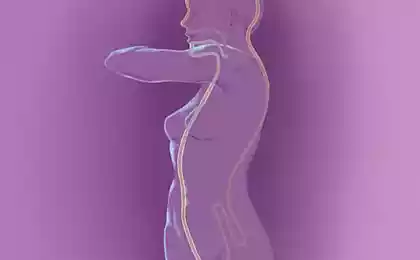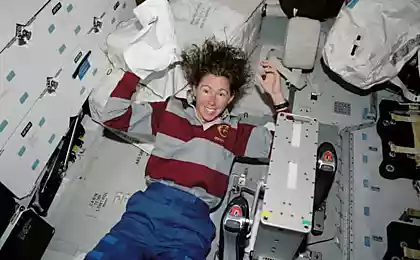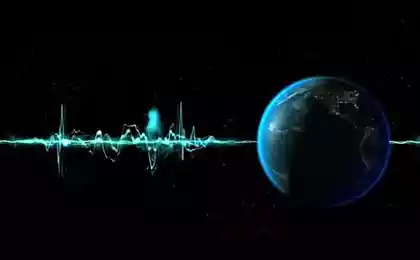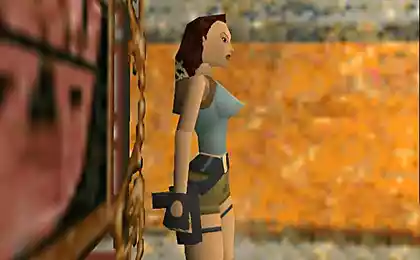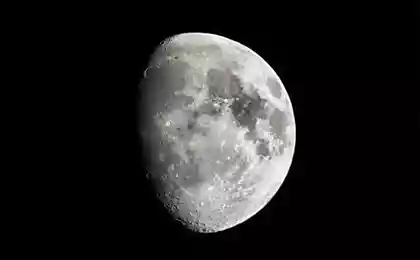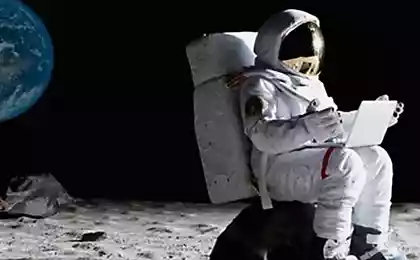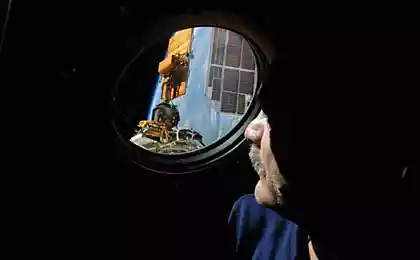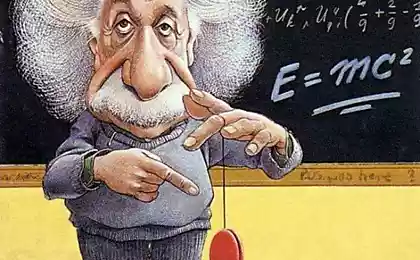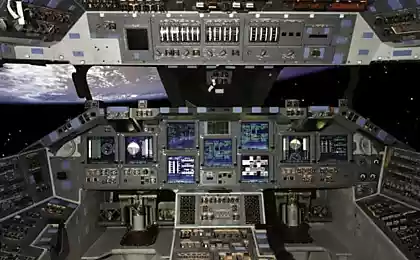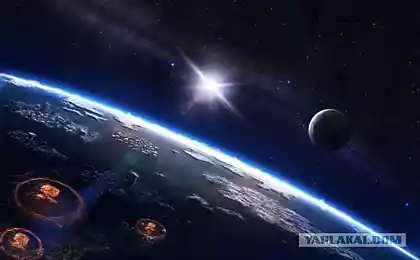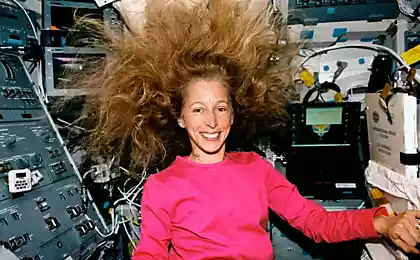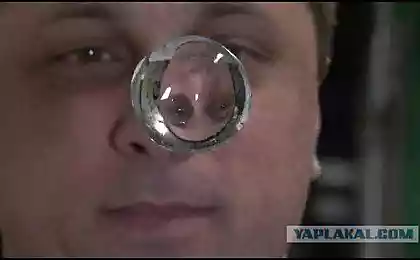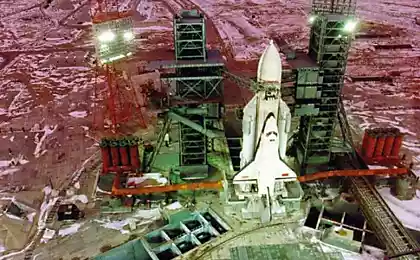461
Physical effects of life in space can generate a new kind of people
What if one day we will meet aliens, and they will be our descendants? The fact that beyond Earth can someone live sounds like science fiction. Our lives occur on this planet. For half a century of space flight in low earth orbit the Earth was visited by less than 600 people, and only 12 have studied the surface of an alien world. The cost and complexity of freeing people from the oppression of gravity kills dream on free space travel.
Eighty four million three hundred sixty six thousand one hundred forty four
However, this should change. Entrepreneurs like Elon musk and Jeff Bezos, are developing reusable rockets that will easily be able to transport people into orbit. Richard Branson hopes to show that there is viable economic model for space travel, was built on recreation and tourism. Robert Bigelow wants in ten years you could stay on vacation on a space station. Meanwhile, governments and space agencies are increasing their efforts to send explorers to the moon and Mars. NASA plans to deliver astronauts to Mars by 2035, and China intends to have a orbital space station and a lunar colony at the same time.
These plans are being fueled by technological innovation. New materials will allow missiles to be lighter, stronger and cheaper when you run. Parts will be manufactured on 3D printers at the International space station. The moon and Mars are far away, but the soil is fairly easy to turn into building materials and to produce there water to drink and oxygen to breathe.
It is even possible to build a space Elevator to the moon: heavy-duty cable, stretching into the sky, supported by its own weight and rotation of the moon, which will allow to transport materials on the elevators in zero gravity. The space Elevator can spur new economic activities and further development of the Solar system. Perhaps, the brave crew will enter hibernation and will head into interstellar space in search of inhabited worlds.
Suppose that all of this will unfold in the next 50 years. We can imagine the first child born outside Earth, and this event would be akin to our distant ancestors out of Africa 60 000 years ago. As life beyond Earth will change us?
Several astronauts have spent more than a year in microgravity and faced with the loss of muscle mass, brittle bones and eye problems. The space station can be rotated to solve these problems, and for the colonists of the moon and Mars gravity will be reduced, but not zero. Their capillaries and cardiovascular system will adapt and the muscle mass to keep up.
Few of us would enjoy the isolation in a cramped bubble homes away from home. The lack of diversity of the natural environment are likely to lead to a weakening of the immune system. Nevertheless, the colonists will be able to experiment with exercises and sex. Their suits are made from materials that are durable, nice and close to the body, so they will be like just to live and to explore the surface of new worlds.
In a fundamentally different and controlled space environment speciation can occur much faster than on Earth.
If the first colony will be filled up with recruits from Earth, physiological changes will be modest. But subsequent waves of colonists unable to break the umbilical cord; they can desiderate or to pursue utopian ideals. In life and death, beyond Earth, a psychological landscape can be shaped by the worldview of another world. Biologically they, too, will develop the new branch of the human tree of life.
How much time it will take and what they will be when they cease to be "us"?
The minimum size of a viable colony, which would avoid excessive genetic abnormalities and inbreeding, is about 160 individuals. The colonists are subjected to two phenomena well-known among small isolated populations on Earth: the influence of the founder and genetic drift. Reducing the genetic pool has a contradictory property, acceleration of evolution. She also will receive acceleration due to the high level of mutations, since cosmic rays will not be held to the thin atmosphere. Little genetic diversity will be unable to contain the pressure of a new speciation. The colonists can be vulnerable to new pathogens that may kill them.
Obviously, all of this can lead to the fact that they have to take their own destiny into their own hands. Technology engineering and "edit" DNA is evolving rapidly, so the colonists optimize your genetic set, bypassing the Darwinian mechanism of natural selection. Advanced medical technology and optimized diet ensures that nearly everyone will live to old age, not only for the fittest.
Extraterrestrial colonists may not be citizens of any country, therefore, will establish its own legal and ethical standards. Most likely, they will aggressively adopt technologies for radical improvement of life or to replace body parts with mechanical equivalents. The merging of man and machine is a grim prospect for many of us, however, the adoption of such technologies will allow the colonists to avoid many physical constraints. This, in turn, expand the list of "inhabited" extraterrestrial environments for colonization. The end result of this scenario can be download consciousness into a computer and getting rid of all dependencies of the physical body.
Some populations in Australia and Papua New Guinea were isolated from the Europeans for over 30 000 years but have not evolved into new species. In extremely excellent and controlled space environment speciation can occur much faster than on Earth.
Suppose some of the colonists returned to Earth after thousands of years and hundreds of generations. Their language is incomprehensible, their culture unrecognizable. They are tall and thin, with pale skin, small teeth, and no hair on the body. Surely we would be scared to look at them and try to know them, as if in a kind of distorting mirror.published
P. S. And remember, only by changing their consumption — together we change the world! ©
Source: hi-news.ru
Eighty four million three hundred sixty six thousand one hundred forty four
However, this should change. Entrepreneurs like Elon musk and Jeff Bezos, are developing reusable rockets that will easily be able to transport people into orbit. Richard Branson hopes to show that there is viable economic model for space travel, was built on recreation and tourism. Robert Bigelow wants in ten years you could stay on vacation on a space station. Meanwhile, governments and space agencies are increasing their efforts to send explorers to the moon and Mars. NASA plans to deliver astronauts to Mars by 2035, and China intends to have a orbital space station and a lunar colony at the same time.
These plans are being fueled by technological innovation. New materials will allow missiles to be lighter, stronger and cheaper when you run. Parts will be manufactured on 3D printers at the International space station. The moon and Mars are far away, but the soil is fairly easy to turn into building materials and to produce there water to drink and oxygen to breathe.
It is even possible to build a space Elevator to the moon: heavy-duty cable, stretching into the sky, supported by its own weight and rotation of the moon, which will allow to transport materials on the elevators in zero gravity. The space Elevator can spur new economic activities and further development of the Solar system. Perhaps, the brave crew will enter hibernation and will head into interstellar space in search of inhabited worlds.
Suppose that all of this will unfold in the next 50 years. We can imagine the first child born outside Earth, and this event would be akin to our distant ancestors out of Africa 60 000 years ago. As life beyond Earth will change us?
Several astronauts have spent more than a year in microgravity and faced with the loss of muscle mass, brittle bones and eye problems. The space station can be rotated to solve these problems, and for the colonists of the moon and Mars gravity will be reduced, but not zero. Their capillaries and cardiovascular system will adapt and the muscle mass to keep up.
Few of us would enjoy the isolation in a cramped bubble homes away from home. The lack of diversity of the natural environment are likely to lead to a weakening of the immune system. Nevertheless, the colonists will be able to experiment with exercises and sex. Their suits are made from materials that are durable, nice and close to the body, so they will be like just to live and to explore the surface of new worlds.
In a fundamentally different and controlled space environment speciation can occur much faster than on Earth.
If the first colony will be filled up with recruits from Earth, physiological changes will be modest. But subsequent waves of colonists unable to break the umbilical cord; they can desiderate or to pursue utopian ideals. In life and death, beyond Earth, a psychological landscape can be shaped by the worldview of another world. Biologically they, too, will develop the new branch of the human tree of life.
How much time it will take and what they will be when they cease to be "us"?
The minimum size of a viable colony, which would avoid excessive genetic abnormalities and inbreeding, is about 160 individuals. The colonists are subjected to two phenomena well-known among small isolated populations on Earth: the influence of the founder and genetic drift. Reducing the genetic pool has a contradictory property, acceleration of evolution. She also will receive acceleration due to the high level of mutations, since cosmic rays will not be held to the thin atmosphere. Little genetic diversity will be unable to contain the pressure of a new speciation. The colonists can be vulnerable to new pathogens that may kill them.
Obviously, all of this can lead to the fact that they have to take their own destiny into their own hands. Technology engineering and "edit" DNA is evolving rapidly, so the colonists optimize your genetic set, bypassing the Darwinian mechanism of natural selection. Advanced medical technology and optimized diet ensures that nearly everyone will live to old age, not only for the fittest.
Extraterrestrial colonists may not be citizens of any country, therefore, will establish its own legal and ethical standards. Most likely, they will aggressively adopt technologies for radical improvement of life or to replace body parts with mechanical equivalents. The merging of man and machine is a grim prospect for many of us, however, the adoption of such technologies will allow the colonists to avoid many physical constraints. This, in turn, expand the list of "inhabited" extraterrestrial environments for colonization. The end result of this scenario can be download consciousness into a computer and getting rid of all dependencies of the physical body.
Some populations in Australia and Papua New Guinea were isolated from the Europeans for over 30 000 years but have not evolved into new species. In extremely excellent and controlled space environment speciation can occur much faster than on Earth.
Suppose some of the colonists returned to Earth after thousands of years and hundreds of generations. Their language is incomprehensible, their culture unrecognizable. They are tall and thin, with pale skin, small teeth, and no hair on the body. Surely we would be scared to look at them and try to know them, as if in a kind of distorting mirror.published
P. S. And remember, only by changing their consumption — together we change the world! ©
Source: hi-news.ru





